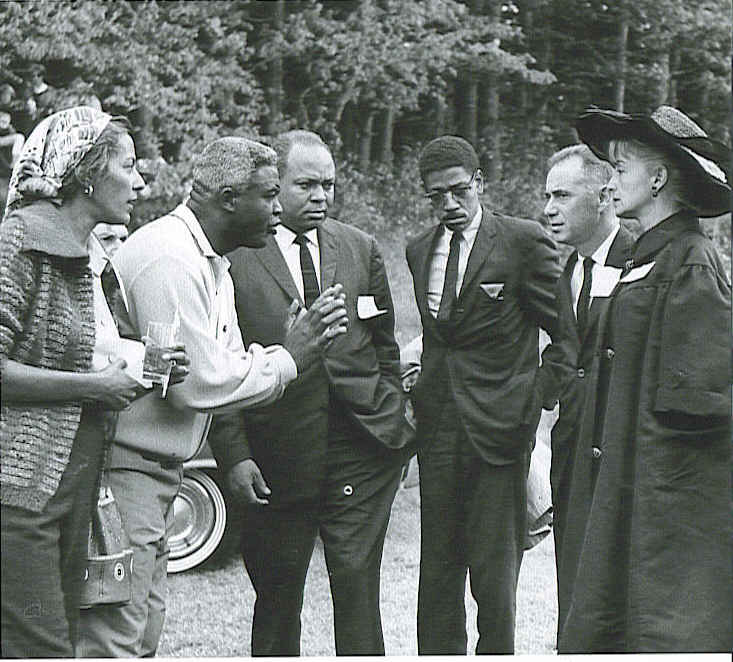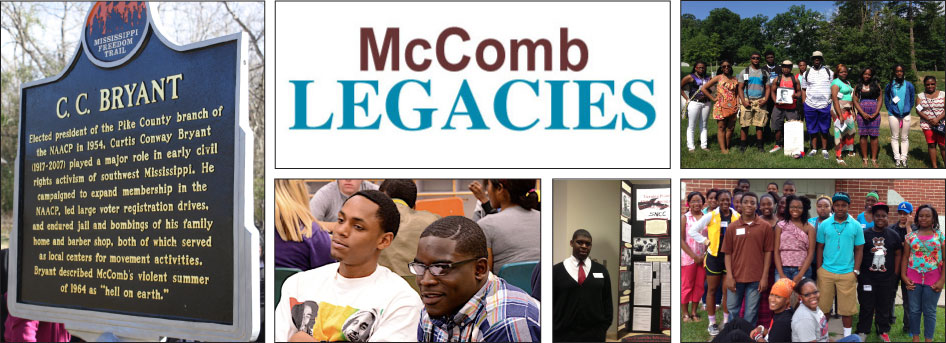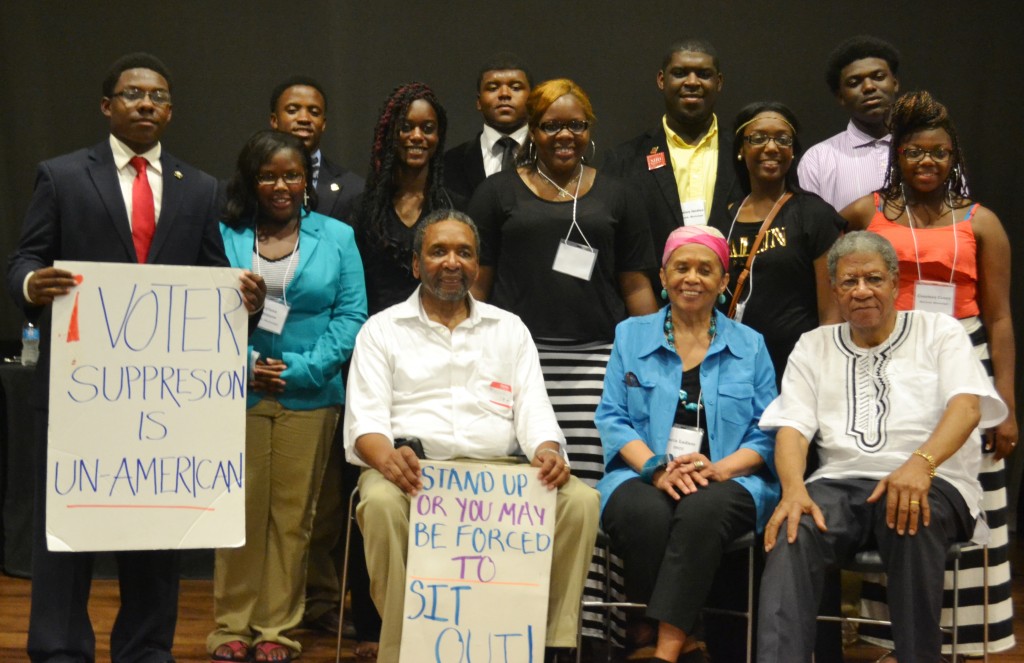Featured
Timothy L. Jenkins Talks to Young People
Students from McComb, Mississippi shared their National History Day Projects at a reception at the African American Civil War Museum on June 17, 2014. There were 40 guests in attendance, including teachers, community members, and activists.
SNCC veterans Frank Smith, Dorie Ladner, Joyce Ladner, and Timothy Jenkins spoke briefly about memories from Mississippi and the importance of activism today, especially in the face of new voting rights restrictions.
Here are the remarks from Timothy Jenkins.
One of the current myths is that the Civil Rights Movement is over, but if you read the newspapers, you’ll see that that’s a lie. In the state of North Carolina they’re now enacting legislation that will prevent people from registering before the election. They changed the laws so that people can’t register on the day before, it has to be a week before.They raised other kinds of problems that have affected other states, not just Mississippi, places like Arizona, places like Utah.
You must not think that the struggle of the 60’s is over.
As long as there are people who want to control power for their personal benefit and for the benefit of their families, for the benefit of their neighbors, for the benefit of the people who look like them, or the people who have the same income that they have the movement is not over.
One of the things I happened to be doing was going through some old tapes that I had made from my little battery driven, Hitachi tape recorder. I made those tapes in 1962 and 1963. I listened to them and I listened to the songs. What I really had satisfaction in was that we were better than we knew. I think that’s the important thing to remember; that we can be better than we know and the challenge of the next generation is to be better than you think you are.

From left to right: Marian Logan and Jackie Robinson in discussion with James Farmer of CORE, Timothy Jenkins of SNCC, and the parents of Andrew Goodman. Image source: “Jackie Robinson: An Intimate Portrait” p. 185.
It is one of my great satisfactions that we’re going be holding a 50th reunion of Freedom Summer and people will be coming back from across the country.
But let’s remember why Freedom Summer was important and why it succeeded. We made a decision–Bob Moses, Charlie Jones, Charlie Sherrod, Chuck McDew–that as long as black people were being brutalized and being killed and locked up, the country wouldn’t care. That we had to take an initiative to get some white people heard to get some white reporters down there to cover the news and get on nightly news, and make people know that this is not a peculiar problem that only affects black people.
One of the unsaid things is that when we started the movement in Mississippi for black people, there was supposed to be a parallel movement run by the Northern Student Movement and the Students for Democratic Society to go into the white community and do what we were doing in the black community. The white community still needs that movement. Anytime white people will vote against their own interests on health care, vote against their own interests in education, vote against their own interests in the business of property rights–it indicates that white people are still yet to be reached by their movement.
One of the things I hope will happen in the next generation is that people will be mobilized to go to the white south like we were mobilized to go to the black south because until we liberate the white people from the stupidity and the backwardness and the ethnocentricity that they suffer from as a disease, we’ll not be a liberated country.
So this is not a celebration of what has been accomplished, this is a date for a commitment to what we have yet to do.
We can be better than we think we are, we did it once, and we can do it again.

